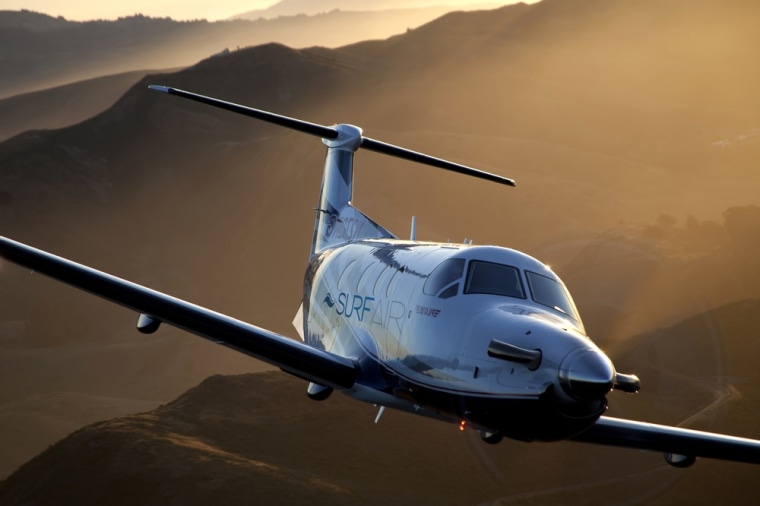You can stuff yourself silly at all-you-can-eat buffets and drink yourself stupid at an all-inclusive resort, but is the world ready for all-you-can-fly air travel?
Wade and Dave Eyerly, a pair of brothers from Southern California, believe it is and they’ve got the plan — and $4 million in venture capital — to back them up. Using a subscription-based model that offers unlimited flights starting at $790 per month, the two hope to launch Surf Air later this year and shake up the industry in the process.
“Buying plane tickets for individual flights is like paying $8–$9 every time you go to Gold’s Gym,” said CEO Wade Eyerly. “We’re removing the ticket from the revenue model.”
To accomplish that, the company is hoping to sell monthly subscriptions to commuters and frequent fliers who will appreciate the comfort and convenience of flying between Palo Alto, Santa Barbara, Monterey and Los Angeles in eight-seat, Pilatus PC-12 executive jets. According to Eyerly, the company has already signed up 500 Founding Members and has another 1,500 on its waitlist.
Of course, Surf Air isn’t the first airline to offer unlimited travel for a set fee. In the fall of 2009 and 2010, JetBlue offered a one-month All You Can Jet pass for $499 to $699 while Air Canada has occasionally sold a Transcontinental Pass, good for three to six months, for $4,382 per month.
Then there’s American, which went so far as to offer unlimited travel for life for as little as $250,000 in the early 1980s. According to the Los Angeles Times, 66 people took them up on the offer, including some who flew dozens of times a month, racked up 30 to 40 million miles along the way and cost the carrier millions in unanticipated expenses.
The Eyerlys have no intention of rolling down that particular runway. For one thing, they have no intention of offering transcontinental or international service; for another, they only need eight passengers to fill a plane so they can fly as frequently as needed. And, most important, they’re targeting routes that larger planes can’t service efficiently.
“Our sweet spot is routes that require a two-and-a-half to six hour drive,” said Eyerly. “Doing that with a plane that seats 80 to 100 people is like driving a Ferrari in New York City. By the time you get up to speed, you have to descend.”
Indeed, the combination of membership, small planes and short-haul routes could be a winning ticket, says aviation consultant Michael Boyd of Boyd Group International Inc. Boyd, it should be noted, has rarely met a start-up airline he actually liked.
“Friend don’t let friends start airlines but this might be an exception,” he told NBC News. “They get the money ahead of time so they don’t have to wait to see if people are interested and they can run those planes up and down the coast all day long.”
And if the project goes the way of so many other start-ups that have tried to reinvent the aviation wheel?
“If it doesn’t work out, at least they won’t be saddled with planes nobody wants,” said Boyd. “They should be able to unload them pretty quickly.”
In the meantime, the company has completed financing for its first three planes, hopes to acquire them and receive Federal Aviation Administration (FAA) certification in the coming months and begin operations by the end of the year.
Rob Lovitt is a longtime travel writer who still believes the journey is as important as the destination. Follow him at Twitter.
More stories you might like:
